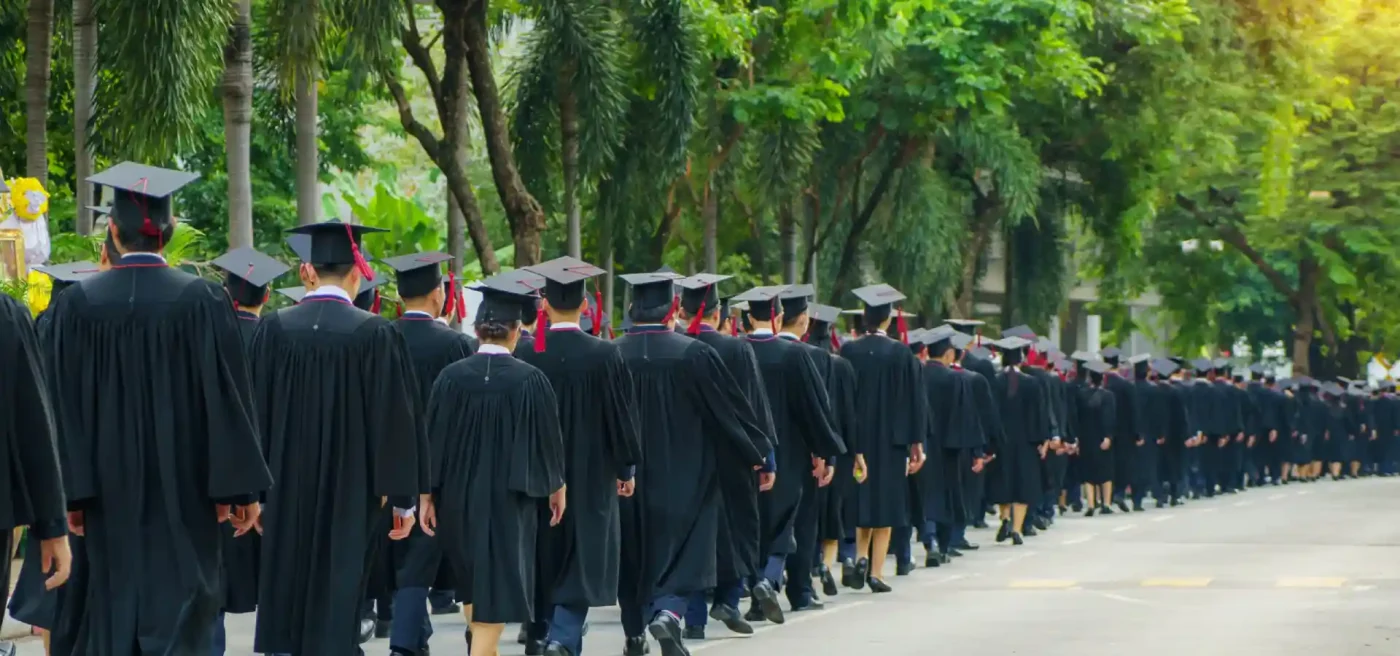In the bustling city of Bangkok, a novel service has emerged, capturing the imagination of Thai social media users. A man named Anon, along with a small group of friends, has introduced a “hired relatives” service tailored for university graduation ceremonies. For students whose family members cannot attend these milestone events, Anon and his team offer to stand in as surrogate relatives, providing emotional support, gifts, and companionship throughout the day. Priced at 400 Thai Baht (US$11) per hour, this unique offering has sparked widespread curiosity and debate about the evolving nature of social connections in modern Thailand.
A Creative Solution for Absent Families
The concept is simple yet striking. Anon, who advertised the service through a Facebook post on May 14, 2025, explained that he and five friends—four women and one man—are available to act as family members for graduates. These stand-in relatives not only attend the ceremony but also bring small gifts or flowers and offer care and attention, mimicking the role typically played by parents or siblings. “We want to make sure no one feels alone on such an important day” Anon shared in his post, as reported by local outlets.
By the following day, the post had exploded in popularity, amassing over 7,500 likes, more than 300 comments, and 4,000 shares. The viral response highlights a blend of amusement and genuine interest among Thai netizens, many of whom see the service as both a quirky business idea and a poignant reflection of societal shifts. For some graduates, particularly those from rural areas or with families abroad, the absence of loved ones at graduation can be deeply felt. Anon’s service offers a practical, if unconventional, solution to fill that emotional gap.
The Cultural Context Behind the Trend
Graduation ceremonies in Thailand are significant cultural events, often steeped in tradition and family pride. Students don formal attire, participate in elaborate processions, and receive their degrees in the presence of loved ones who have supported their academic journey. The presence of family is not just symbolic but integral to the celebration, with parents and relatives often traveling long distances to attend. However, rapid urbanization, economic pressures, and migration patterns have led to situations where family members are unable to be physically present.
In this context, Anon’s service taps into a growing need. Bangkok, as Thailand’s economic and educational hub, attracts students from across the country, many of whom face logistical or financial barriers to having family attend. The idea of hiring stand-in relatives, while initially surprising, resonates with a culture that places high value on community and social bonds, even if those bonds are temporarily constructed for a fee.
Mixed Reactions on Social Media
The response on social media platforms reflects a spectrum of opinions. Some users have praised the ingenuity of the service, with comments suggesting it could provide comfort to those who might otherwise feel isolated. Others, however, have questioned the authenticity of such an arrangement, wondering if hired relatives can truly replicate the emotional depth of genuine family connections. “It’s a nice idea, but it feels a bit sad that we need to pay for family” one commenter noted on Anon’s post.
Despite the mixed feedback, the overwhelming engagement with the post suggests that the service has struck a chord. It raises broader questions about how modern Thai society navigates the tension between tradition and innovation, particularly in moments of personal significance like graduations. The viral nature of the post also underscores the power of social media in amplifying niche ideas, turning a small-scale service into a topic of national conversation overnight.
A Glimpse into Thailand’s Gig Economy
Anon’s initiative also fits into the broader landscape of Thailand’s burgeoning gig economy, where creative and personalized services are increasingly common. From ride-hailing apps to freelance event planners, the country has seen a proliferation of non-traditional jobs catering to specific, often emotional, needs. The “hired relatives” concept, while unique, aligns with this trend, offering a bespoke experience that prioritizes personal connection over material gain.
At 400 Thai Baht (US$11) per hour, the service is relatively affordable, making it accessible to a wide range of students. While Anon has not publicly disclosed how many clients have booked the service since the post went viral, the level of interest suggests a potential market. Whether this idea will evolve into a sustainable business or remain a fleeting social media curiosity remains to be seen, but it undeniably reflects the entrepreneurial spirit of Bangkok’s youth.
Looking Ahead: A New Normal?
As Thailand continues to modernize, services like Anon’s may become more commonplace, challenging conventional notions of family and support. For now, the “hired relatives” phenomenon serves as a lighthearted yet thought-provoking commentary on the changing dynamics of personal relationships in an increasingly urbanized society. In a city as vibrant and diverse as Bangkok, where tradition and innovation often collide, this unusual job offer is a small but telling example of how people adapt to fill the gaps left by distance and circumstance.
For graduates stepping into the next chapter of their lives, having someone—hired or not—cheer them on during their big moment might just make all the difference. As the conversation around this service unfolds, it leaves room to wonder what other creative solutions might emerge to meet the emotional needs of a fast-changing world.
















